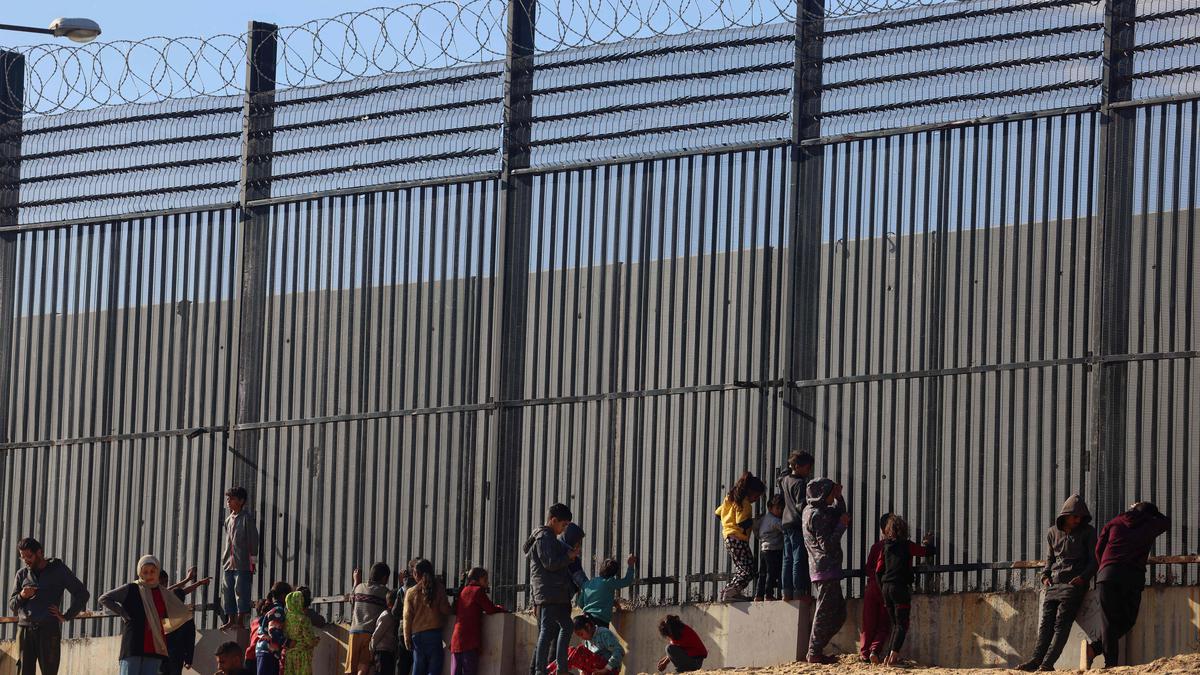Israel and Hamas have made progress towards a potential 30-day ceasefire agreement amid the ongoing conflict in Gaza. The agreement would involve the release of Israeli hostages and Palestinian prisoners. Negotiations involving Qatar, the U.S., and Egypt have been taking place since December 28, with the aim of achieving not only a break in hostilities but also an increase in humanitarian aid to Gaza. However, the two sides are still in disagreement regarding the permanent resolution of the Gaza war.
The Israeli military has continued its assault on Khan Younis, the main city in southern Gaza. They have encircled the city, thereby blocking the escape route for civilians trying to reach Rafah on Gaza’s southern edge. The city is currently overcrowded with displaced Palestinians.
According to military spokesperson Rear Admiral Daniel Hagari, Israeli forces have killed over 100 militants in western Khan Younis in the span of 24 hours. Israel claims to have killed around 9,000 militants in total, although this number has not been verified by Reuters.
On Monday, the Israeli military suffered its deadliest day in three months, with 24 soldiers being killed in two incidents. This brought the overall Israeli military death toll in Gaza since late October to 220. Hamas claimed responsibility for a rocket attack that killed 21 soldiers.
The latest deaths have not altered Israel’s objectives in the war against Hamas. Prime Minister Benjamin Netanyahu stated that they would continue fighting until achieving absolute victory. Israel’s government spokesperson, Eylon Levy, also stated that there would be no ceasefire that left Hamas in power and hostages in Gaza.
The death toll among Palestinians has risen dramatically, with Palestinian health officials reporting that at least 195 Palestinians were killed in the prior 24 hours, bringing the documented death toll to 25,490. United Nations Secretary-General Antonio Guterres condemned the collective punishment of the Palestinian people and emphasized the need for a Palestinian state alongside Israel.
Efforts towards a ceasefire deal have gained momentum recently. Qatar stated that it has presented ideas to both sides and has received replies from each, which is seen as a cause for optimism. U.S. Middle East envoy Brett McGurk is engaged in active discussions on securing the release of hostages and ensuring a humanitarian pause. However, previous attempts to extend the release of hostages held by militants in exchange for Palestinian detainees collapsed, with each side blaming the other.
The situation in southern Gaza remains dire as Israel has blockaded hospitals, making it difficult to rescue the wounded. Reports indicate that hospitals, such as the European Hospital and Nasser Hospital, are overwhelmed with casualties, forcing them to bury bodies on-site. The UN coordinator of emergency relief, Martin Griffiths, reported that strikes on an aid warehouse, UN center, and humanitarian zone in the Khan Younis area resulted in the death of 24 people.











